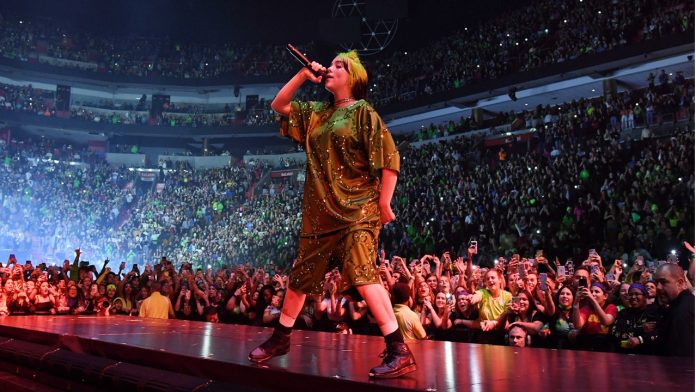Inflation continues to plague economies around the world, prompting economists to look for unexpected causes of rising prices for goods and services. In a surprise twist, music events have surfaced as a potential component in this alarming trend. As ticket costs for prominent performers like Beyoncé and Taylor Swift skyrocket, researchers are looking into the relationship between concert attendance and inflation.
While fans rush to stadiums to see their favourite singers perform, the financial consequences of these events extend far beyond the initial ticket purchase. According to Klaus Baader, global head economist at Societe Generale, the rising costs of live performances go beyond admission fees. In an interview with CNBC Make It, Baader noted, “One of the things that struck me is how enormously high prices for concerts, for gigs have become. It’s not just that the tickets become more expensive. It’s also that your beer or cider or your Coca-Cola or your hot dog at the venue has also gotten a lot more expensive.”
The ripple effect of these price hikes extends beyond concert venues and into other sectors as well. Travel and lodging prices have also risen, putting a huge burden on concert-goers’ finances. The relationship between music events and inflation was underlined by Filip Andersson, head of research for Sweden at Danske Bank, using Beyoncé’s recent tour stop in Stockholm as an example. The resulting rise in hotel prices during the event weeks had a significant impact on Sweden’s consumer price index, particularly in the Stockholm region, where hotels were allegedly completely booked.
While some economists are sceptical about the direct impact of certain concerts on inflation rates, they recognise the broader economic factors at play. Philip Shaw, chief economist at Investec, believes that concert costs in general have risen and are contributing to overall inflation. He emphasised that musicians’ revenue models have changed, with live performances replacing traditional album sales as the key source of income.
The post-pandemic era has seen an increase in demand for live entertainment, with fans keen to return to concerts after a long absence. According to Baader, this increasing demand, along with household savings accumulated during the pandemic, has allowed customers to pay higher ticket prices, pushing inflationary pressures even further.
While economists expect only a temporary impact on inflation levels, concert ticket prices are expected to remain high. According to Baader of Societe Generale, there will be “a lot of resilience in the prices of musical and other cultural events” due to higher disposable income and artists’ reliance on tours to generate revenue.
Although the influence of concerts on inflation may be brief, the economic consequences of attending these live events appear to be inescapable. As fans eagerly await the next tour of their favourite singers, they must be prepared to pay considerable sums not only for the tickets but also for the ancillary expenses that come with attending a concert.

